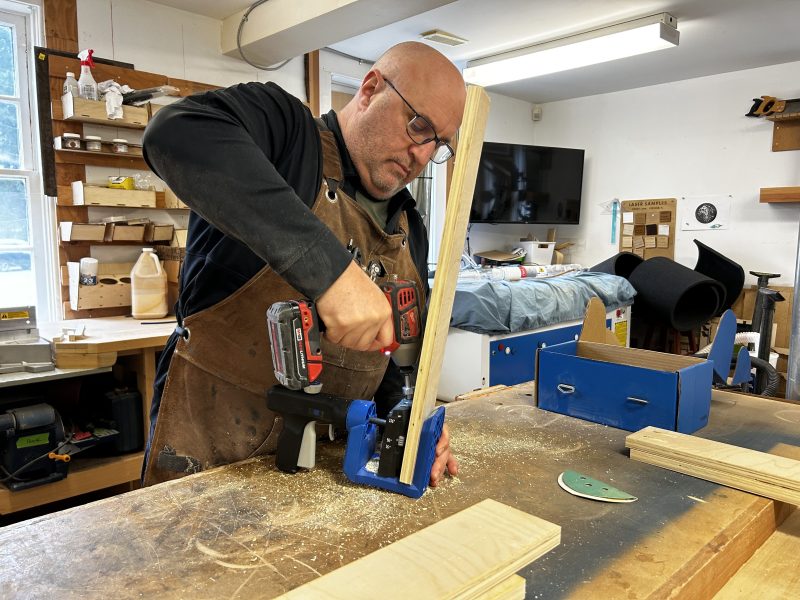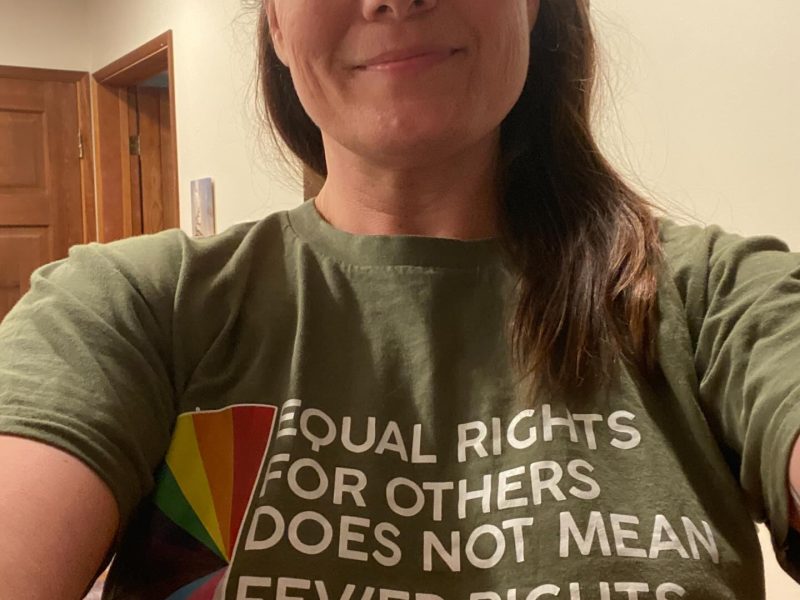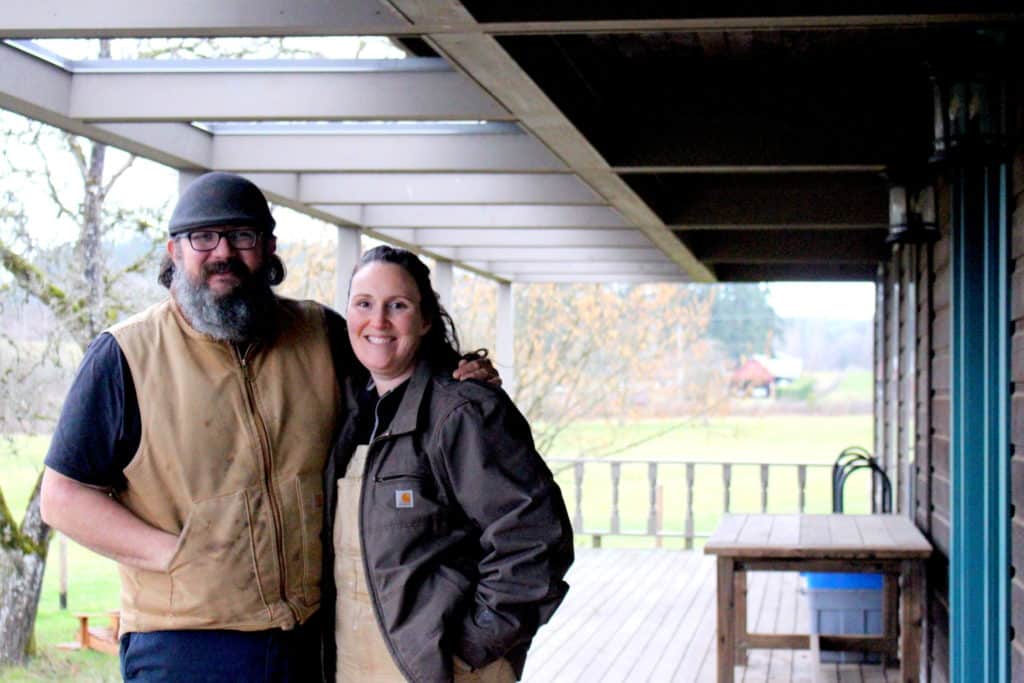
Seven years ago, George and Rebecca Papadopoulos moved to the Cowichan Valley—taking a break from their busy lives in Vancouver. They found a beautiful property that needed a lot of work and decided to start a diversified farm to nourish the local community.
Today, even with three kids, a new dog and a few years of work, the couple still hasn’t run out of ideas.
Keating Farm is a beehive of circular projects; the couple’s secret for sustainability and economic stability. From livestock, to crops, to creative side gigs, the Papadopoulos family is putting down different roots in the Cowichan Valley.
Grazing their way to success
While livestock — beef especially — is known for its large carbon and water footprint at an industrial scale, the couple feels their commitment to regenerative livestock grazing has also helped them commit to sustainability.
“Raising smaller numbers of these animals on pasture [requires] far less intervention and far less feeding and watering,” Rebecca explains in an interview. “There’s actually very little attention that’s really required.”
Beyond feed and water consumption, for these farmers, cattle is actually an essential part of building soil and helping sequester carbon. Rebecca and George say they soon hope to practice holistic management on their property, where livestock lives in symbiosis with the nature, benefiting wildlife and people.
Herbivorous cattle and sheep evolved to roam the grasslands in herds, feeding on a variety of plants while aerating the soil and leaving just the right amount of manure behind to fertilize it. For healthier livestock and soil, Rebecca and George plan to let cattle graze for three days in a padlock with chickens and sheep following behind.
“A chicken scratches and spreads the manure […] that’s just enough time for flies to land on all the cow pies and to create little larvae, which becomes an important food source for the chicken,” says Rebecca.
The secret to the logistics of holistic management lies in “how you build your infrastructure,” clarifies George. “If you get a group of animals to understand that they get moved every three days, it’s as simple as opening the gate — they’ll run in there.”
While the regenerative farmers don’t have cattle yet, they’ve focused their attention on ewes and lambs, and are planning to expand their operations with rotational grazing management in the coming years.
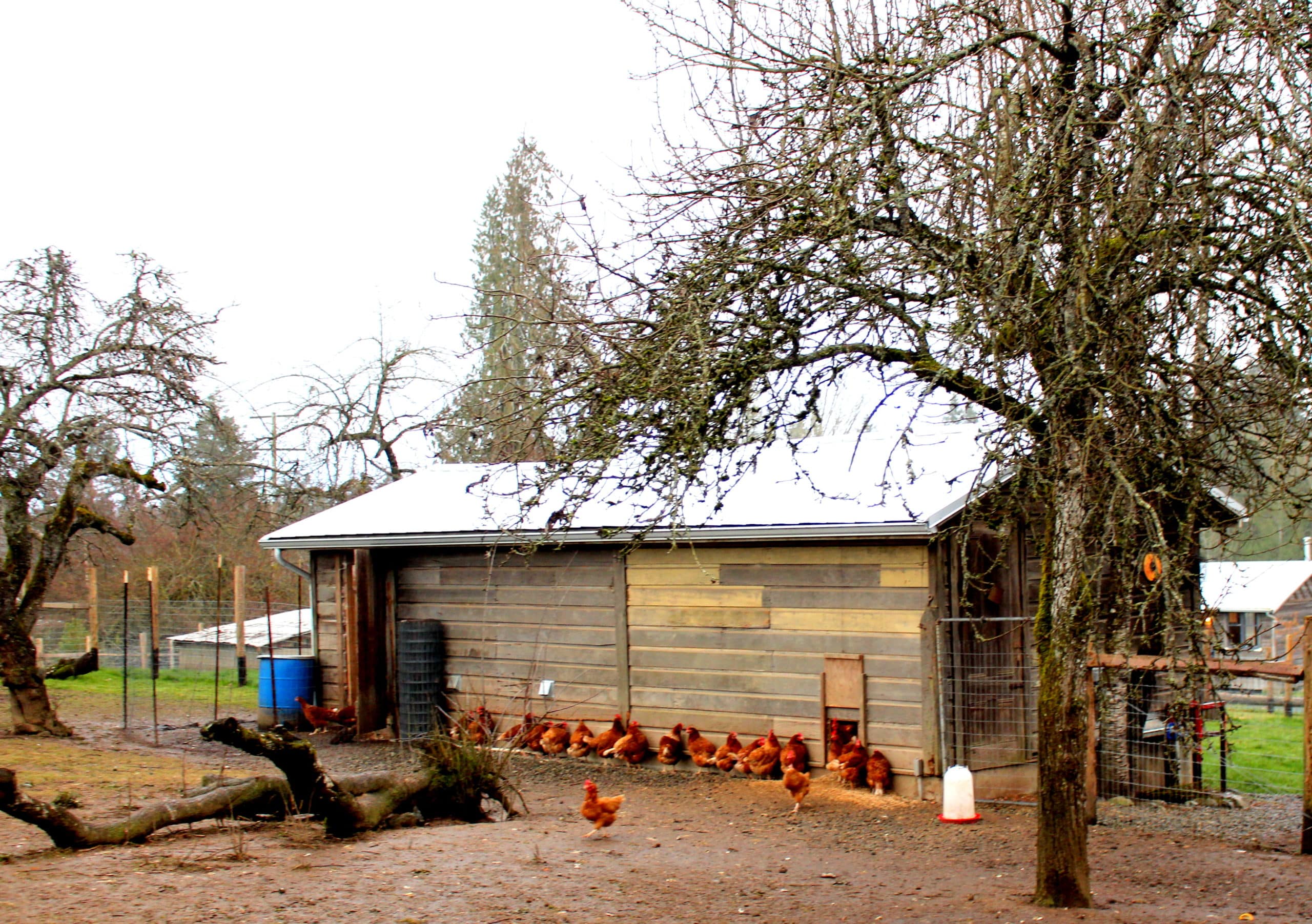
Taking every step into their own hands
Every year, the farm also hosts 12 pigs, 400 roasting chickens and a growing flock of laying hens under their orchards. The animals are partially fed with organic waste in partnership with Thrifty Foods and Ampersand Distilling Company.
The Papadopoulos’ partner with local artisans, too. To make the most of what is at hand on their farm, a neighbouring beekeeper harvests the most flavourful honey from the linden trees on their property. The couple also has plans to grow grains to start a local brewery and a zero-waste café in the future using the produce and meat from their farm.
The products at Keating Farm are sold in season, and they now have customers buying in bulk. Some locals will reserve up to 30 chickens or even whole lamb carcasses to stock up for the year.
“With a little bit of coaching, a little bit of shaking up and cooking techniques, you help people understand that there is a lot of goodness that comes from [the animal parts] that people tend to just throw away,” says George.
The farmers are even considering adding a small meat processing service on the property. They explain that access to slaughter options in the Cowichan Valley is challenging with long waiting lists. Meat inspection rules have also changed over the past years, leading to a decrease in the number of facilities.
Related story: Inside the effort to expand meat processing options for Vancouver Island farmers
“You have to kind of take control of that risk on your own, with a community service that could come out of that,” George notes.
A facility would help them process their livestock at the right time with less stress for the animals or the couple. Not only would this help them make their production process completely independent, but they could help other nearby homestead producers.
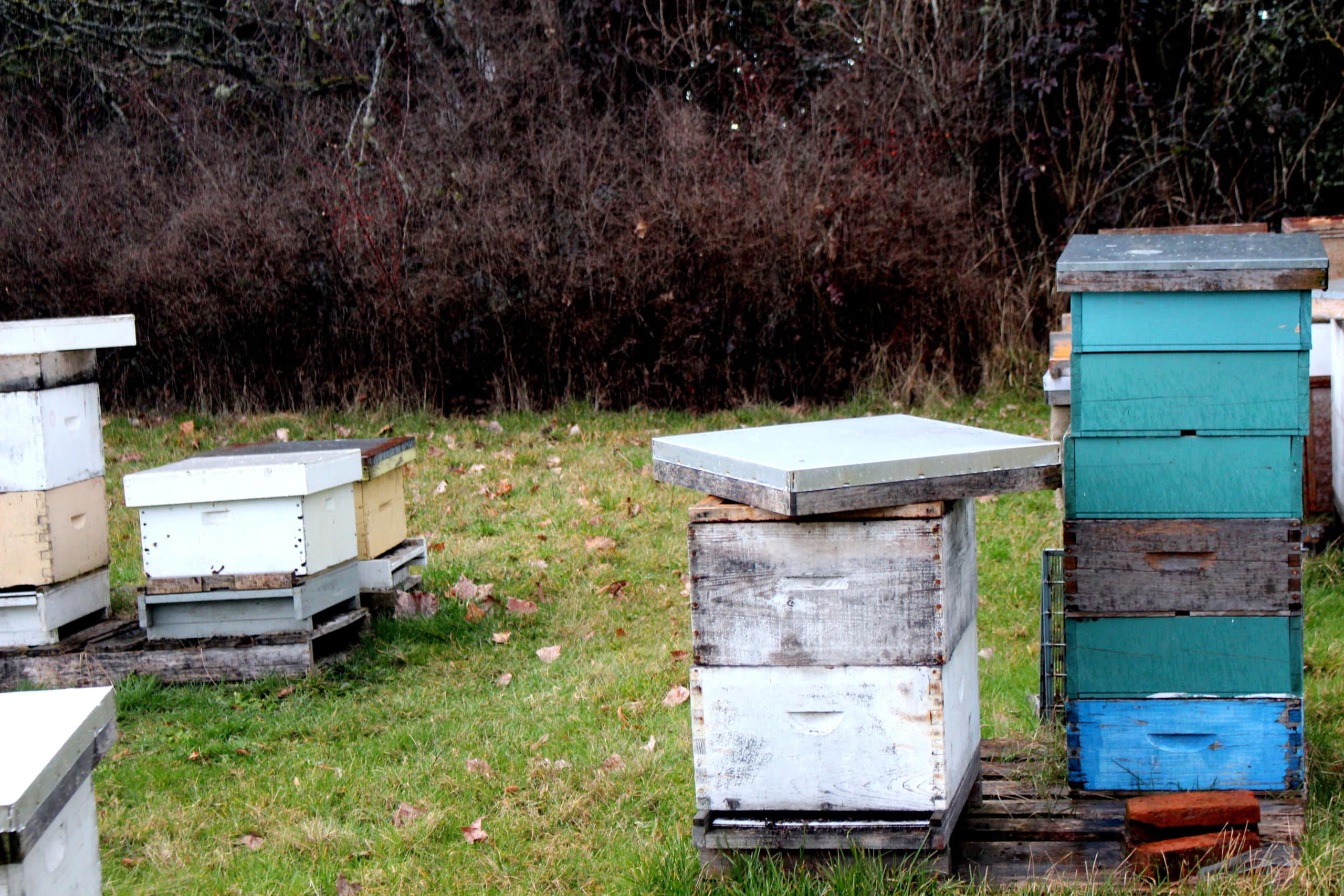
Making every penny count
The couple’s project diversification does bring finances into question. Selling meat, juices and eggs at a small scale is not financially viable.
“The margins are incredibly tight, and if anything goes wrong through the process, like an animal dying, you’re not making money this year and that’s part of why being diversified is so important,” Rebecca explains.
George and Rebecca have put their property to good use in other ways to increase profits. They host weddings and events in the hopes this combination of different revenue streams is going to sustain the family in the long run.
Related story: This Cowichan Valley farm is innovating towards small-scale profitability
Rebecca explained modern farmers need to be innovators — developing several business models, limiting expenses on equipment and making the most of every product available from their land and property.
For newer farmers trying to get a foothold, the couple recommends starting by renting land at first and keeping one person in the family working off the farm.
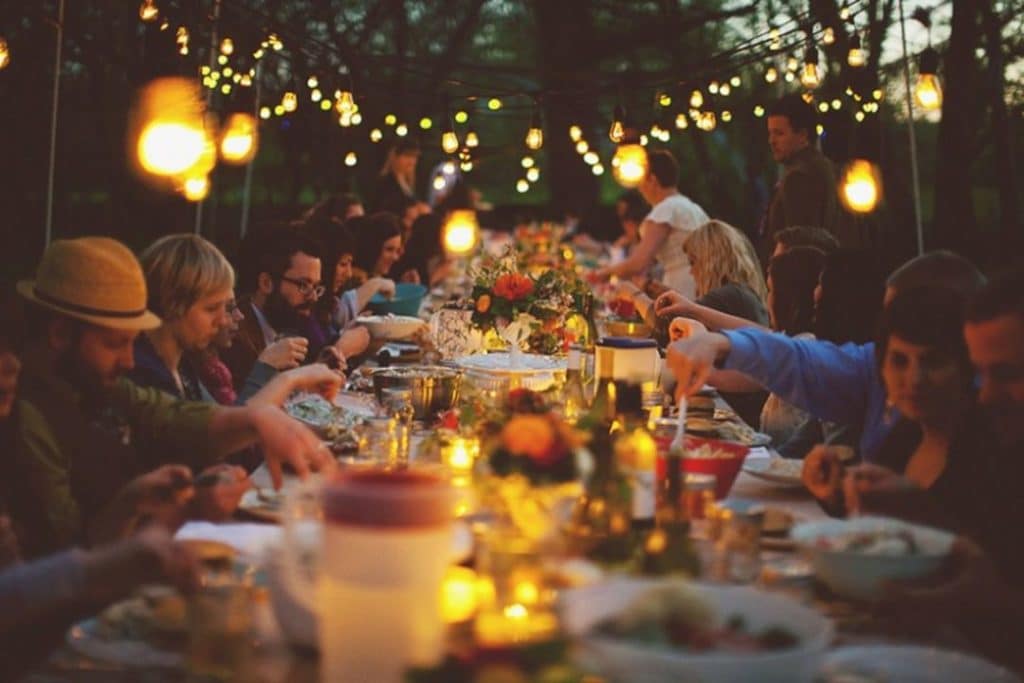
They say they had a slow start, but still, within just a couple of years of farming, the couple managed to grow their diversified production with regenerative practices and are following their plan to be economically viable in the long term.
George and Rebecca say farming is how they hope to contribute to a more sustainable future.
“We’ve got three kids and we were worried about what the world was going to look like for them,” explains Rebecca. “I think that is the charge we’re faced with in our generation.” [end]
This Food For Thought article is made possible in part with funding from the Real Estate Foundation of BC and Journalists for Human Rights/RBC. Their support does not imply endorsement of or influence over the content produced.


